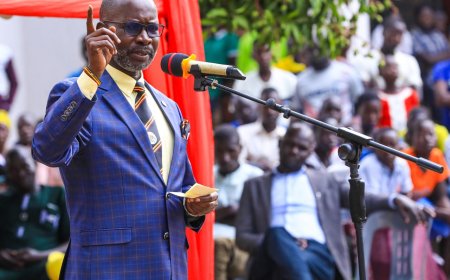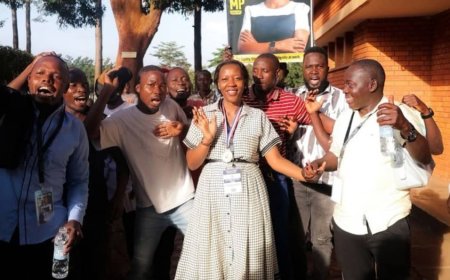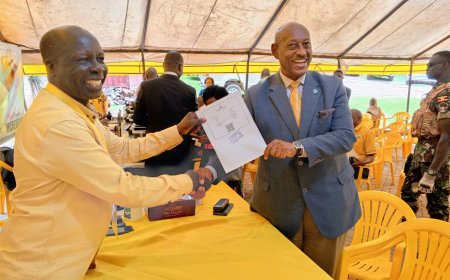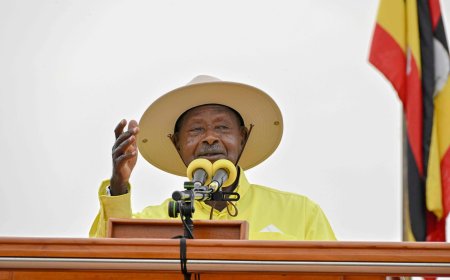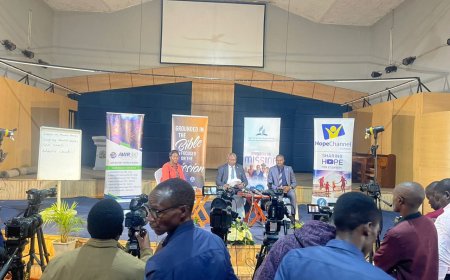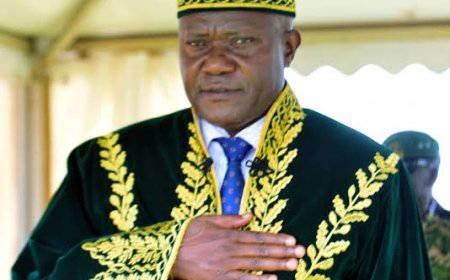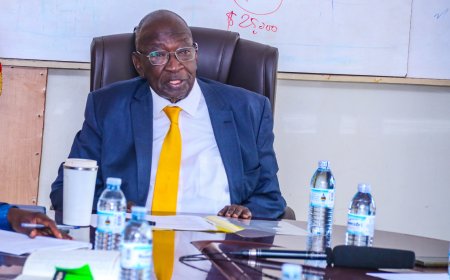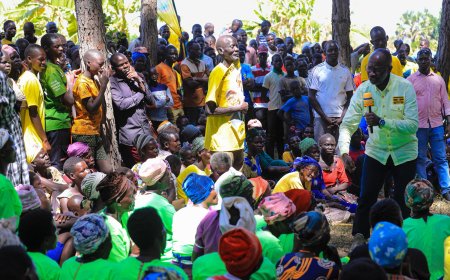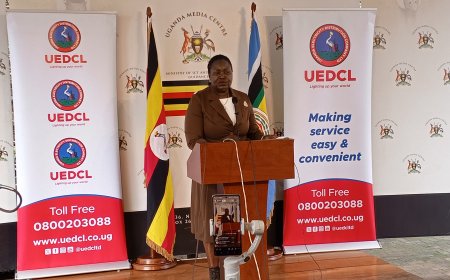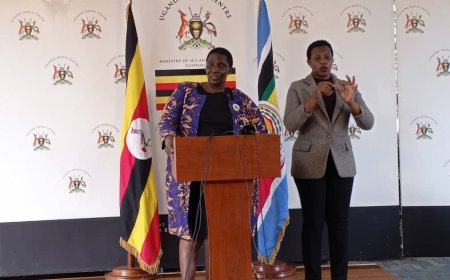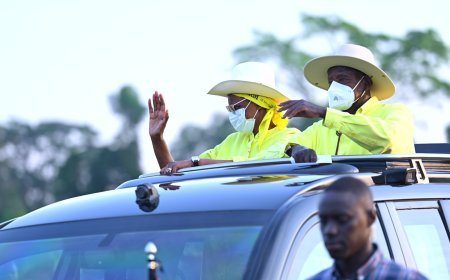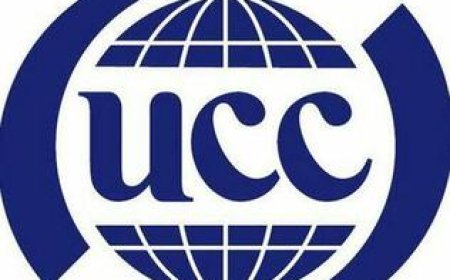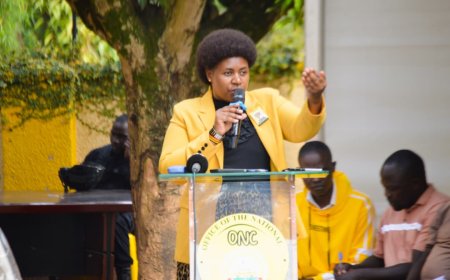President Museveni Urges Farmers in Kazo to Maximise Land Productivity through Modern Agriculture
President Museveni emphasized the advantages of zero-grazing systems over traditional free-range livestock farming. According to the President, free-range grazing limits land efficiency, with one square mile supporting only about 200 cows. In contrast, planted pasture and zero-grazing techniques can allow the same area to support over 500 cows, significantly boosting milk production and overall farm income.
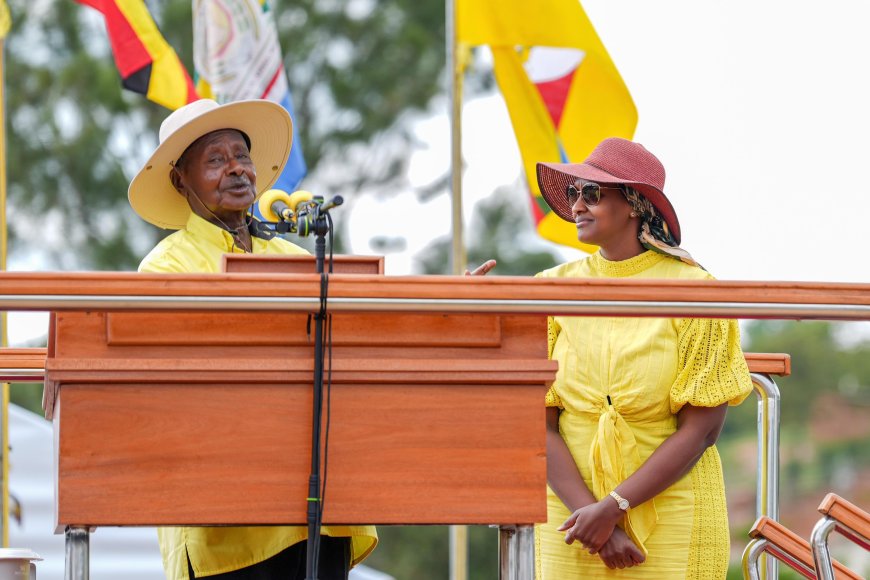
Kazo, Uganda – President Yoweri Kaguta Museveni today addressed residents in Kazo, highlighting the importance of modern agricultural practices to maximize wealth creation and land productivity. Speaking during a public rally, the President commended Ugandans for embracing the National Resistance Movement’s (NRM) long-standing message of economic empowerment through agriculture and practical wealth creation.
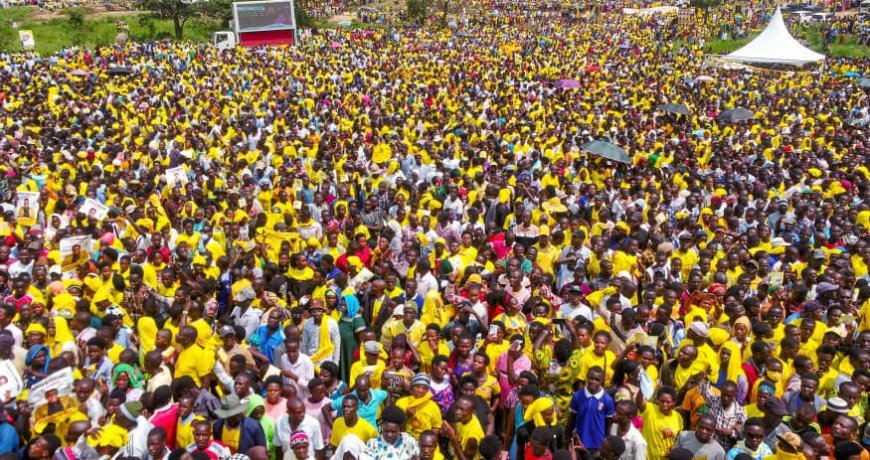
“Over the last 40 years, we have laid seven foundational ‘matafari’ for Uganda,” Museveni noted, referring to the core pillars of national development. “Today, the key to further prosperity is to ensure that every acre of land is put to productive use.”
President Museveni emphasized the advantages of zero-grazing systems over traditional free-range livestock farming. According to the President, free-range grazing limits land efficiency, with one square mile supporting only about 200 cows. In contrast, planted pasture and zero-grazing techniques can allow the same area to support over 500 cows, significantly boosting milk production and overall farm income.
“Ugandans must adopt intensive farming practices. Free-range grazing wastes land and reduces potential income,” he said. The President’s remarks align with the government’s Operation Wealth Creation (OWC) initiative, which has been instrumental in encouraging farmers to modernize agriculture, plant cash crops, and embrace livestock intensification.

Museveni also cautioned farmers against underutilizing large plots of land or dividing them among heirs in ways that destroy their economic value. He cited examples of farmers who, despite owning small parcels, have achieved significant wealth through careful management:
Nyakaana of Fort Portal, who successfully maximized less than 10 acres
Joseph Ijala of Serere, who also prospered on a small holding
“Size of land is not the only factor; it’s what you do with it,” the President said. “Focus on intensive production rather than fragmentation or idle land.”
The President highlighted the successes of Uganda’s agricultural sector, particularly in milk and coffee production, which have increased significantly thanks to farmers adopting modern farming techniques. He reiterated that the path to sustainable wealth and national development requires persistence, innovation, and a strong commitment to productivity.
“Many Ugandans have woken up, embraced dairy farming, planted coffee, and are reaping the benefits,” Museveni said. “Let us continue on this path of economic empowerment and wealth creation. This is the true practice of the NRM message.”
President Museveni’s address underscores the government’s ongoing commitment to agricultural transformation as a tool for rural development and national prosperity. By promoting zero-grazing, land consolidation, and intensive crop cultivation, the NRM aims to ensure that Uganda’s farmers can achieve higher yields, sustainable income, and a stronger agricultural economy.

For residents of Kazo, the message is clear: productive land use, modern farming, and strategic planning are key to achieving economic growth at both the household and national level.
